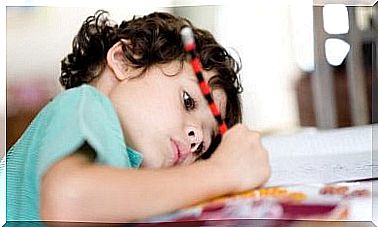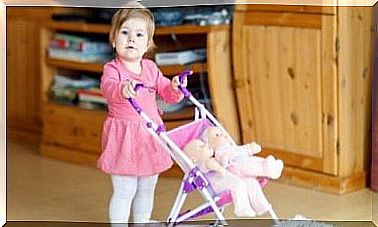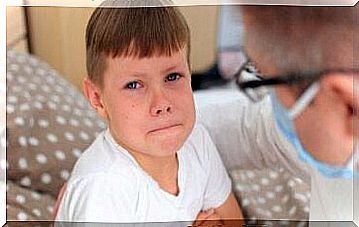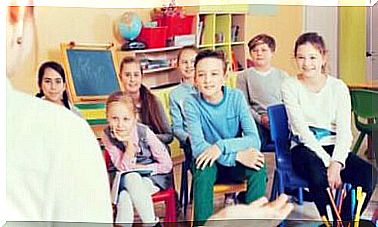Not To Divorce Your Children – Being Parents
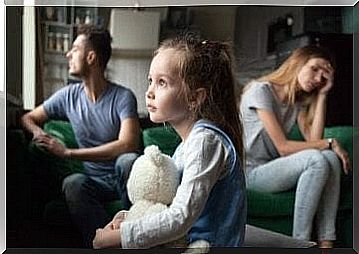
Personal relationships are a complicated business that doesn’t always turn out the way we planned. When a couple is no longer functioning and the two are planning to separate, it is common to hear the expression “ I don’t want to divorce my children ”. But have you thought about the harm this can do to them?
The decision to end a marriage doesn’t happen overnight. After disappointments and many attempts to move on, it is often concluded that there is no point in continuing the relationship. However, separation and divorce are difficult and uncomfortable steps to take.
In this situation, many parents, more or less consciously, use their children as an excuse not to face the idea of personal failure that divorce represents for them. Even the small percentage of parents who do so with the welfare of their children in mind will have the opposite effect.
Not getting a divorce for your children: how does it affect them?
For young children, parents are their ultimate role model. It is from them that they will learn to behave and to interpret the world. Childhood is the playground in which we play all our lives; what we assimilate during these early years will define our concept of family, love, coexistence, expression of affection and conflict resolution.
Both conflicting and indifferent homes reflect situations that are extremely damaging to a child’s forming minds.
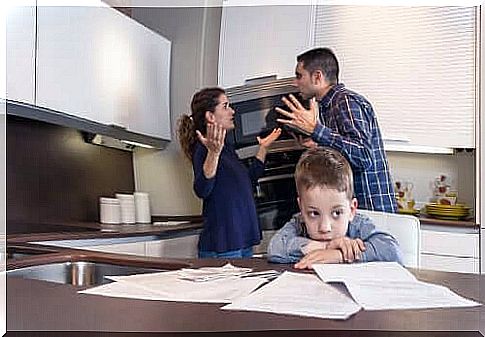
Conflict outbreaks
Some couples stay together even if they have concluded that they are not happy with this union. Therefore, their coexistence is marked by conflicts, arguments, shouts and reproaches. Even if they try not to fight in front of the child, the child ends up perceiving it and seeing it more or less.
This creates in him a constant feeling of stress and lack of protection. He feels anger and fear for the discussions that ensue, but he cannot seek advice and relief from his parents. They are angry and uncontrollable, portraying the situation that bothers him.
The child will try to change this situation by avoiding recounting his own problems so as not to generate new conflicts. Or, on the contrary, by trying to attract attention through inappropriate behavior. The whole thing will be that the attention of his parents is focused on him.
Finally, the child internalizes the conflict. It assumes that yelling and rebuking are valid strategies for interaction and that respectful agreements cannot be reached. He will understand that life is suffering and that relationships are a battle. Once an adult, it will be very difficult for him to establish healthy and generous relationships.
Indifferent homes
The situation is no better for children who grow up in homes where coexistence is broken. Parents who ignore each other completely and lead separate lives. Parents may think that if there are no arguments, they are not causing pain for their children. But they keep them immersed in an uncomfortable and totally devoid of affection and tenderness environment between the couple.
Despite the fact that they live with both parents, these children have no family plans. Often they observe how their parents sleep in separate places and barely speak to each other. They watch their sad and defeated parents in their own home as they treat each other like complete strangers.

The little one will feel sad and guilty about this situation, will try to encourage family moments. He will feel frustrated when he is unsuccessful or when these become uncomfortable. In addition, he will take with him the feeling of responsibility to make his parents happy, since they are not themselves.
The child will learn that it is acceptable for a partner to be treated with recklessness and indifference, to endure instead of seeking their own happiness. In addition, they will lack examples of living together and it is possible that they will become a very lonely person.
Do not divorce for your children: it is better to separate
When the relationship could not be saved, it is best to respectfully part ways and take different paths. No one can give what they don’t have, and we can’t teach our children courage, love, and happiness if we don’t have it first.
The separation will be difficult and frustrating for everyone, but we will help the little one understand that sometimes it is necessary to make difficult decisions and change course, because we all have to seek our well-being.
